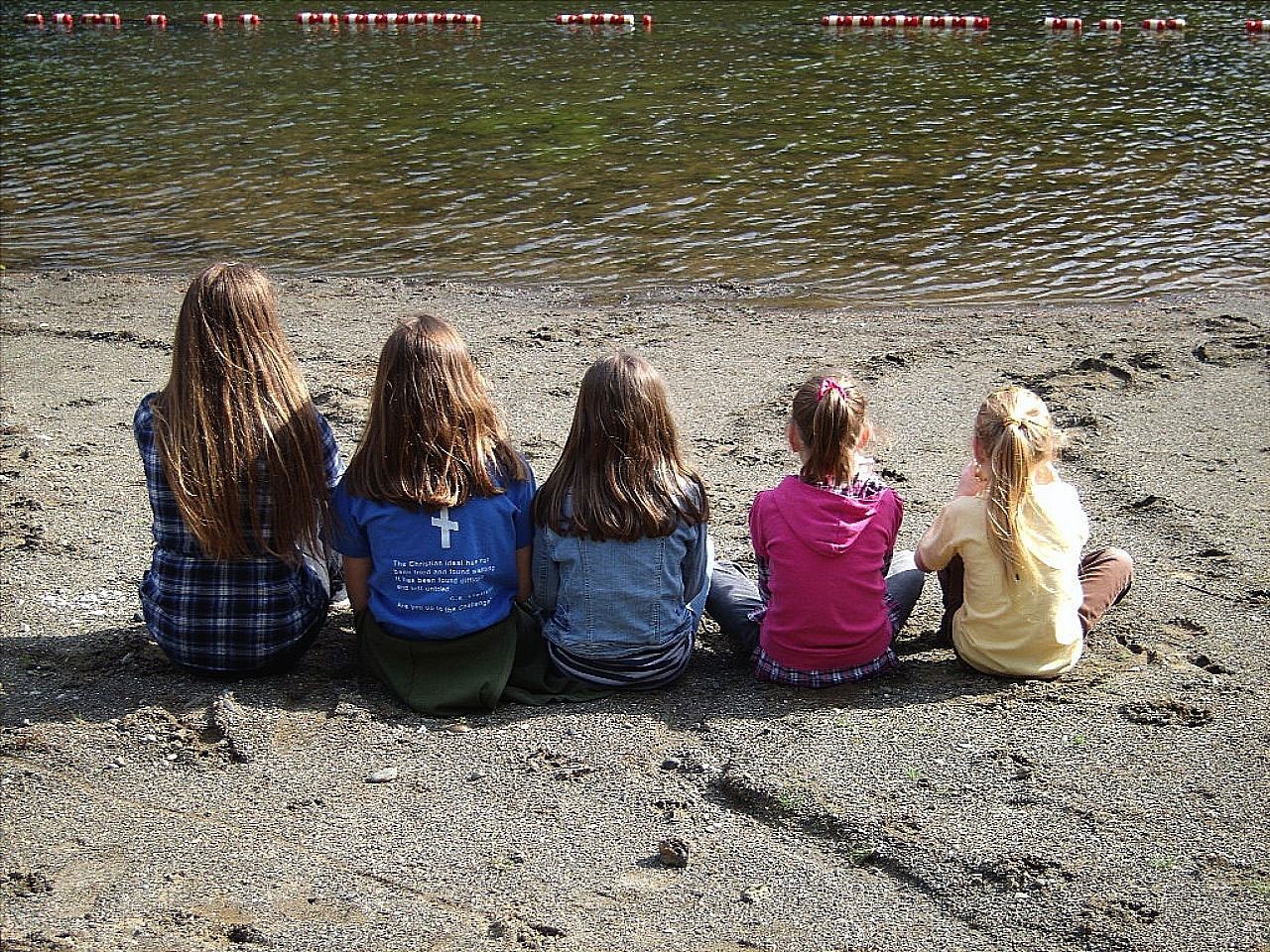
Homeschool Deregulation and Child Abuse
Milton Gaither
Image from Pixabay
This article is part of our “Children and Education Rights” series.
If you’d like to check out other articles in this series, click here.
If you’re looking for a convenient signpost to mark the beginning of the homeschooling movement in the U.S. you might choose the publication of the first ever newsletter devoted to the practice, hand-typed and sent out to a few families by the famous education reformer John Holt in August of 1977. One of the major concerns of that issue and those that followed was state regulations. At that time state statutes about homeschooling varied widely. Fourteen state compulsory schooling laws said nothing at all about it, though they did usually mention the acceptability of children being taught in private schools. Fifteen explicitly mentioned home instruction in one way or another. The remaining twenty-one contained phrases like “equivalent instruction elsewhere” or “instruction by a private tutor” that could be read to imply recognition of home education as a legitimate option. The thirty-six states with either explicit or implied provisions differed over what rules applied to this alternate pathway and over who was in charge of regulating it. Some were very vague, offering no real guidance. Some established robust requirements for home education. Six even required that any home educator had to be certified by the state just like a public school teacher.1For complete treatment of the early legal history of homeschooling in the United States see Milton Gaither, Homeschool: An American History,207-240 (2017).
In the 36 states with actual or implied statutory language about homeschooling, most in the 1970s left regulation up to local officials. In the late 1970s most local educational officials were tolerant of homeschooling, largely because the rare homeschooler in those years typically approached the school as a mild-mannered pedagogical progressive who wanted to experiment with a more liberatory pedagogy. But by the mid-1980s a much larger group of homeschoolers existed, most of whom were antagonistic Christian fundamentalists convinced that public education was indoctrination into godless secular humanism. Across the country local school officials became hostile, and legal battles multiplied. Some state courts upheld the restrictive regulations, but others concluded that the state statues were unconstitutionally vague. In both cases the battle for homeschooling regulation would move from the courts to the state legislatures. Thirty-seven states added or updated home education language in their compulsory school laws in the years between 1981 and 1991, most of them in response to pressure from well-organized and vocal homeschooling advocates energized by court cases that either upheld the current law that these homeschoolers found oppressive or that ruled that the current law was unconstitutionally vague. It was here in the legislatures that the true power of grassroots homeschooling activism proved itself again and again, as homeschoolers presented shows of force the likes of which state legislatures had never seen before, keeping the pressure on until they got what they wanted. By the mid-1990s, homeschooling was clearly legal and easy to do in every state of the country.
But the story does not end there. Most of the laws states passed in the 1980s and 1990s included regulations of one sort or another, ranging from the simple requirement that homeschoolers report the number of children they are removing from school, to requirements that homeschooling parents have at least a high school diploma or GED, to specific curricular requirements and some form of oversight by the school district, to record-keeping requirements regarding time spent schooling, to regular assessments of student progress. Legal challenges to these regulations initiated by homeschoolers have consistently failed, but year by year homeschoolers and their allies in state legislatures have steadily rolled them back. Since 1995 seventeen states have removed accountability mechanisms their original law had included, while to date thirty-two attempts to add or restore accountability mechanisms have failed.2A Timeline of Homeschool Legislation, Coalition for Responsible Home Education, Nov. 15, 2018, https://responsiblehomeschooling.org/an-outline-of-homeschooling-legislation/.
Since 1995 seventeen states have removed accountability mechanisms their original law had included, while to date thirty-two attempts to add or restore accountability mechanisms have failed.
Only two times have bills aiming to increase accountability been successful. The first was in 2008 in Washington, D.C., in the wake of the horrific case of the murder of her four daughters by homeschooling mother Benita Jacks in 2007. The bodies of the girls were found rotting in bedrooms on the second floor of Jacks’ house months after the girls were killed. The case was so shocking that it gave lawmakers the mettle to resist the onslaught of opposition to their proposed regulations mounted by the Home School Legal Defense Association (HSLDA) and other activists. D.C. homeschoolers must now provide annual notification, have a high school diploma or equivalent, maintain a regular portfolio of activities subject to review by the Office of the State Superintendent up to twice a year, and are subject to gradually more stringent penalties should they fail to comply with these requirements. More recently, in the wake of the horrific murders of two teens by their family members, Georgia in 2019 passed House Bill 530, which tries to increase the level of communication between local school districts and the Department of Human Services in cases where parents remove their children from public schools without filing a declaration of intent to do so.3Petula Dvorak, Banita Jacks Case: Lots of Blame to Go Around in D.C. Girls’ Death, Report Says, The Wash. Post, April 3, 2009, https://www.washingtonpost.com/wp–dyn/content/article/2009/04/02/AR2009040201609.html. Elissa Silverman, D.C. Adopts Oversight Regulations for Home-Schooling, The Wash. Post, July 31, 2008, https://www.washingtonpost.com/wp-dyn/content/article/2008/07/30/AR2008073001173.html. Wright Gazaway, Georgia State Law Adds Oversight for School Systems, Department of Education, WTOC, Dec. 17, 2019, https://www.wtoc.com/2019/12/17/georgia-state-law-adds-oversight-schools-systems-department-education/.
Overall, however, homeschooling is now mostly or completely unregulated in most of the country. In eleven states you don’t even have to tell anyone you’re doing it. This has made it possible for criminals to hide child abuse and neglect, horrific torture that can last for years, and murder. We have no statistics on the frequency with which this happens. All we have are anecdotes, and of these there are hundreds, with more appearing regularly in news accounts across the country. To cite just one recent example, on May 25, 2020, Michael and Shirley Gray were arrested after a passerby alerted law enforcement authorities about an emaciated 10-year-old boy walking alone on a road in Tennessee. The boy began to tell police what was happening in the family home, and on investigation the police found an older son, age 15, who had been locked in the basement without sanitation or outside contact for four years, fed only bread and water. They found a daughter’s remains, which had been buried under a barn in 2017, and when they searched a previous property the Grays had lived in they found the remains of another daughter, buried in 2015. All four children were registered as homeschoolers in Tennessee.4Angela M. Gosnell, REPLAY: Roane County Child Abuse Case Against Michael Gray Sr. and Shirley Gray, Knox News, June 26, 2020, https://www.knoxnews.com/story/news/local/2020/06/26/live-roane-county-child-abuse-suspects-court/3263374001/.
Overall, however, homeschooling is now mostly or completely unregulated in most of the country. In eleven states you don’t even have to tell anyone you’re doing it.
This is just one of hundreds of stories, a database of which you can find on the website “Homeschooling’s Invisible Children,” maintained by the Coalition for Responsible Home Education. Reading through the stories archived there is very sobering and should cause all Americans of good will to come together to construct policies that will seek to maximize freedom for actual homeschoolers, while protecting children from predators using the isolation unregulated homeschooling enables to hide their crimes. To date, however, broad common ground on this issue has been hard to find. Many conservative Christian homeschoolers, influenced by the legacy of R. J. Rushdoony and other theorists and activists, advocate an absolute separation between the sphere of the family (which, according to these theorists, the Bible says should be entirely free of government oversight) and that of the government (which, they believe, is currently aligned with the false religion of secular humanism). Many of HSLDA’s founders and current lawyers have been deeply influenced by this line of thought, and tens of thousands of homeschoolers align themselves with HSLDA’s views. On the other hand, many academics who advocate for stronger regulation of homeschooling frequently display a lack of understanding of and sometimes animus against homeschooling, especially religiously-motivated homeschooling. Their regulatory proposals are viewed with alarm by homeschoolers and used, very successfully, as rallying cries by HSLDA, whose business model flourishes when homeschoolers feel that their hard-won freedoms are under attack by secular liberals.5On Rushdoony’s influence see Gaither, supra note 1, at 149-156, 167-169, 181-186. Examples of academic overreach based on questionable empirical grounds include Randall Curren and J. C. Blokhuis, The Prima Facie Case Against Homeschooling,”25:1 Public Affairs Quarterly, 1-19 (2011): 1-19 and Elizabeth Bartholet, Homeschooling: Parent Rights Absolutism vs. Child Rights to Education and Protection, 62:1 Arizona Law Review 1-80 (2020).
Given conflicting views about the degree to which government should play a regulative role in family matters, my own suggestion would be to try to create broad, bipartisan cooperation on this issue. If homeschooling advocates are not at the table and comfortable with the proposed solutions, reform proposals will go nowhere in many states. Minimalist policies are most likely to find wide support. For example, a state could require that all families who homeschool notify the state every year of their intent to do so and submit annually for each homeschooled child a form signed by a mandatory reporter outside the family testifying to that child’s physical and emotional health. Policies like this avoid the fraught issues of academic and value formation associated with curriculum or diversity mandates, thus maximizing ideological and pedagogical freedom for actual homeschoolers, while at the same time providing at least a modicum of accountability, so that families cannot hide abuse and torture behind the smokescreen of “homeschooling.” They also shift the legal emphasis away from homeschool regulation to child safety. When government tries to regulate homeschooling, the narrative frequently becomes that of a persecuted minority resisting the Leviathan state. But if we can shift the emphasis to children who are suffering horrific abuse, torture, and death, then resistance by homeschoolers to basic protections such as those suggested above seems heartless and immoral. Actual homeschoolers, in my view, should want these basic protections in place, for if they are administered well they will help catch the abusers hiding behind homeschooling deregulation that end up making all homeschoolers look bad. ♦

Milton Gaither is author of Homeschool: An American History, now in its second edition, and editor of The Wiley Handbook of Home Education. He lives in Carlisle, PA.
Recommended Citation
Gaither, Milton. “Homeschool Deregulation and Child Abuse.” Canopy Forum, December 10, 2020. https://canopyforum.org/2020/12/10/homeschool-deregulation-and-child-abuse

